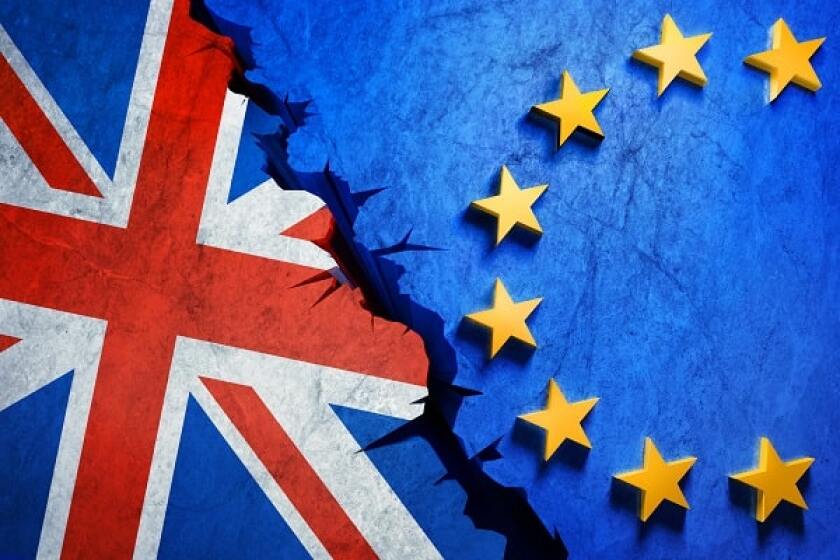A lot has happened in the four years since the UK voted to leave the EU.
The UK has had three prime ministers, three Brexit secretaries and two general elections. In the EU, new presidents of the European Council and the European Commission have been elected and a new European Parliament formed.
Elsewhere in the world, former reality TV star Donald Trump became president of the US and a global pandemic begun ripping its way through the world.
Despite all this, the Brexit debate somehow trundles on. Threats of ‘no deal’ and ‘walking away’ from negotiations have been as common as they were on the morning of June 24 2016.
Nevertheless, the end is now in sight. Come midnight on December 31, the transition period – under which EU law and frameworks still apply in the UK – ends (whether there is a deal or not).
Intellectual property has never been at the top of the agenda for negotiators but there are some changes of note. Managing IP, with the help of clarification from the UKIPO, outlines what lawyers, companies and other IP stakeholders need to know.
EUIPO rights of audience
In October, the UKIPO confirmed, for the first time, that as of January 1 2021 UK practitioners will be unable to represent clients on new EU trademark applications or proceedings at the EUIPO.
In reality, this news has been expected for some time.
A source at the UKIPO tells Managing IP that, although this is the first time the office has officially confirmed this news, other governmental departments including the Ministry of Justice as well as IP industry associations have previously indicated this would be the case.
Once the transition period ends, trademark owners will need to appoint an attorney registered within the European Economic Area (EEA) to represent them. Many larger attorney firms that have both an EEA and a UK presence will be largely unaffected by this. However, solely UK-based attorney firms or individual practitioners will be.
UK-registered legal representatives can continue to represent their clients before the EUIPO in cases that are ongoing at the end of the transition period.
UK address for service
To act in trademark proceedings at the EUIPO, a European Economic Area (EEA) address for service (AFS) is required. The UKIPO currently requires the AFS to be in the EEA, the UK or the Channel Islands.
However, the UKIPO has confirmed that from January 1 the EEA reference will be removed. From next year, only a UK or Channel Islands AFS would be valid for new applications and requests to start proceedings at the UKIPO.
The UK-based Chartered Institute of Trade Mark Attorneys (CITMA) had been campaigning for a reciprocal agreement and, in the alternative, for the UKIPO to remove the EEA references in the AFS.
EU trademarks
Owners of registered EU trademarks (EUTMs) will have known for some time that the UKIPO plans to create a comparable UK mark at the end of the transition period. A UKIPO spokesperson tells Managing IP that the rights will be created automatically with no administrative process required by the applicant. They will be visible on the UKIPO website once IT updates have been implemented.
According to the UKIPO, each ‘cloned’ mark will:
Be recorded on the UK trademark register;
Have the same legal status as if it were applied for and registered under UK law;
Keep the original EUTM filing date; and
Keep the original priority or UK seniority dates
Owners of EUTM applications that were not registered by the end of the transition period will have nine months to apply for the same trademark in the UK and must pay a separate UK application fee of £200 ($253).
Registered Community designs
As with EUTMs, existing registered Community designs (RCDs) will be recreated so that they are valid in the UK.
Those with pending RCD applications will have nine months to apply in the UK and must pay a separate UK application fee of between £50 ($63) and £150 ($190) depending on how many designs are being protected.
The situation is more precarious for unregistered Community designs (UCDs), however, as Managing IP reported in October.
In the EU, a UCD comes into force when the design is made publicly available for the first time – usually after it is published (either online or in print) or exhibited at a trade show. Protection lasts for three years.
It was hoped that after the transition period, a UCD could have protection in the EU even if first disclosed in the UK, and vice versa. However, negotiations failed, meaning disclosure in one territory could leave the design open to copying in the other.
UCDs disclosed in the EU before the end of the transition period will continue to be protected in the UK, and vice versa.
The UK is creating a new UK-only supplementary unregistered design, which will become available from January 1 2021.
International trademarks and designs
Existing international trademarks and designs, which are applied for via WIPO’s Madrid and Hague Systems, will continue to be valid in the UK as long as they designate the EU.
On January 1 2021, the IPO will create:
A comparable UK right for every international trademark designating the EU; and
A re-registered UK right for every international design designating the EU.
However, as with EUTMs and RCDs, where an application has not been granted, the applicant will have nine months to apply for an equivalent UK right.
Patents
As has been widely reported, patents are largely unaffected by Brexit. The system that administers patent rights in Europe, the European Patent Convention, is a non-EU framework.
Applicants can continue to apply for a European patent through either the UKIPO or the EPO.
Existing European patents covering the UK are unaffected.
Patent attorneys based in the UK will still be able to represent applicants at the EPO provided they have passed their European Qualifying Examination.
One area that has changed, however, is the UK’s involvement (or lack of) in the proposed Unified Patent Court (UPC).
The UPC, if it comes into force, will enable applicants to have a patent granted throughout 24 EU member states (previously 25, including the UK). It is open only to EU members and will, on occasion, make referrals to the Court of Justice of the EU.
The previous government led by Theresa May said it intended to stay in the UPC after Brexit, but that stance has changed since the December 2020 general election when the Conservative Party, adopting a fiercely pro-Brexit stance under Boris Johnson’s leadership, won a large majority.
Supplementary protection certificates
Supplementary protection certificates (SPCs) were brought in under EU law but are granted on a country-by-country basis. This meant it was not necessary to create a comparable UK right.
The Withdrawal Agreement, signed on January 24 2020, ensures that pending SPC applications at the end of the transition period will be examined under the current framework. Applicants can continue to apply for an SPC by submitting an application to the UKIPO.
As it stands, the government has not announced any substantive changes to the SPC system for the post-transition period.
Copyright
Laws governing copyright terms and what can be protected are largely unaffected because of the UK’s participation in international copyright treaties.
However, there are aspects of current UK law which are derived from EU directives. These will be incorporated into UK law, so there will not be any short-term change.
One aspect that is changing, however, is the EU Copyright Directive. The government has indicated it does not plan to implement the directive, which was approved by the European Parliament in April 2019, into national law.
Geographical indications
The Department for Environment, Food and Rural Affairs has published guidance, including on geographical indications (GIs).
All UK products that are currently GI protected in the EU will continue to be protected in the UK and the EU after the transition period ends. Business guidance on this area will be published shortly.











